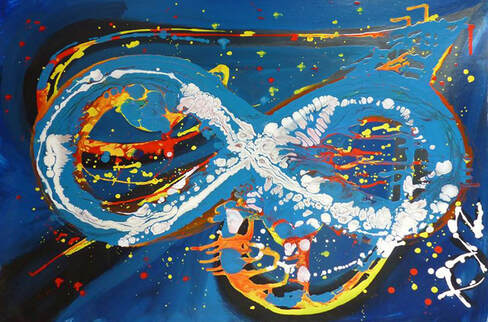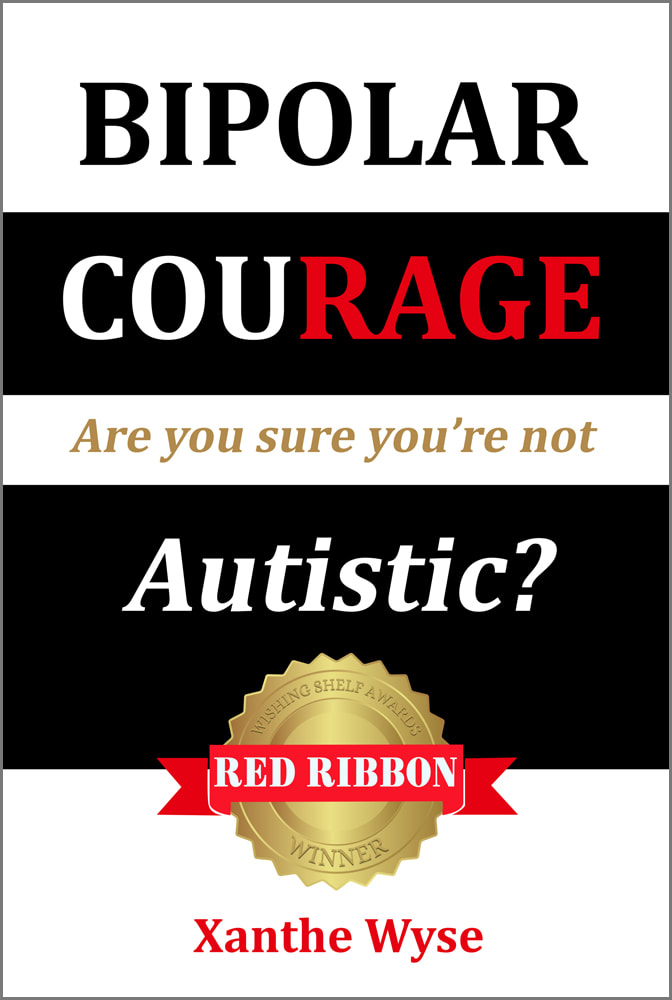|
The final stages of a book are pretty exhausting. I had a two hour sleep crash yesterday afternoon, and again, this afternoon. I finally wrote the introduction for my memoir (I do this at the end, from some notes I'd jotted down along the way). I self-publish as an indie author. There are no hard and fast rules about introductions. Generally, I've seen it recommended, to write an introduction in the third person. I've included one, to help the reader know a little of what to expect, without giving the story away. Plus it's a bit unusual in that I haven't stated what people look like, what their jobs are, their location etc. You know, the usual stuff that people spend a lot of time fluffing out a story with. I've included my introduction, below. Expect to publish the memoir, Bipolar Courage: Are You Sure You're Not Autistic? initially to Amazon, within 4 weeks. Introduction 'Are online relationships real?' That’s a question the author, Xanthe Wyse, asks the reader to consider. Xanthe currently likes to write about relationship drama with disabilities. This story is mostly set on social media, over a period of a few years. The focus is on the intense connections and clashes with ‘Maxwell’, an autistic man (Asperger’s syndrome diagnosis). The author’s primary diagnoses are bipolar affective disorder and post-traumatic stress disorder (PTSD). Interaction of their diagnoses exaggerated the dynamics of the complicated friendship. Most of the events in this memoir only came about because of the author’s advocacy as Bipolar Courage. This is an account of some of the juicy and amusing behind-the-scenes events, in storytelling form. The author expects some people, in certain social media circles, will play a guessing game as to who the characters are. She has never said publicly who the characters are in this memoir. She has changed names but also further disguised with vagueness. Possible identifying features such as nationality, ethnicity, occupation, family details, political views and appearance, have been omitted. Dialogue has been paraphrased, to disguise any distinctive speech patterns. Preferred diagnoses, by characters, where relevant are stated. Yes, some people prefer to state their diagnosis as Asperger’s syndrome, despite accusations of being a ‘Nazi sympathiser’ or an ‘Aspie supremacist.’ The author did not rely on her recollections alone. To ensure accuracy and emotional truth, Xanthe devoted significant time cross-checking records like her vlog and journals. Neither embellishing nor demonising the story nor characters. Her aim in this memoir was for an entertaining story, with some insights from her experiences along the way. Also, to convey her unique perspective: the bigger picture plus details that even Maxwell doesn’t know about. Xanthe’s disabilities affect her cognition, communication, and short-term memory. This is despite her long-term memory for some things being exceptional. She is bound to have broken some rules of grammar, despite repeatedly checking. This is her best writing effort since her semiautobiographical novel, Pet Purpose: Your Unspoken Voice. Pet Purpose captured the experience of bipolar mania, from the inside and the outside. This memoir, Bipolar Courage: Are You Sure You’re Not Autistic? is her most emotionally vulnerable book, so far. The storyline is mostly light-hearted, but there are some intense and potentially triggering scenes. Intended for a mature audience. References, including which versions of songs are included at the end of the story. Enjoy! ArtworkThe painting in this blog post, Outer Space High was done with old garage paints on cardboard, during a bipolar mania episode. Improvising making a mess can free up creativity.
I chose it for this post, as someone said it looked like a mask.
0 Comments
Leave a Reply. |
Xanthe Wyse('Zan-thee Wise'). Disclaimer: the author of this blog is not an expert by profession and her opinions should not be taken as expert advice.
Archives
March 2024
Categories
All
|



 RSS Feed
RSS Feed